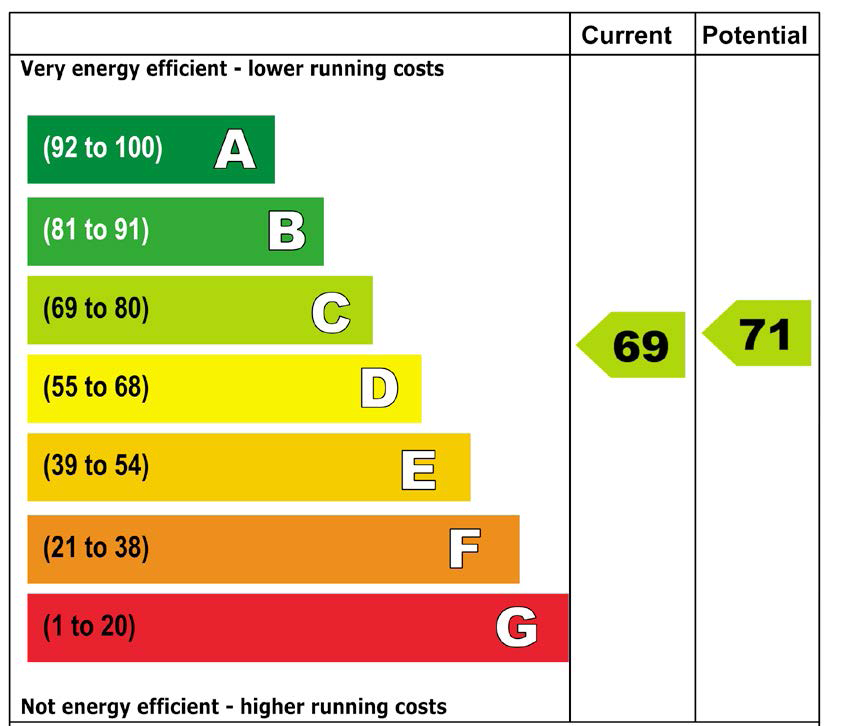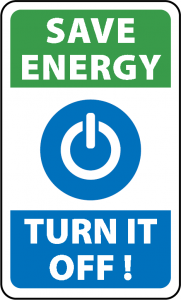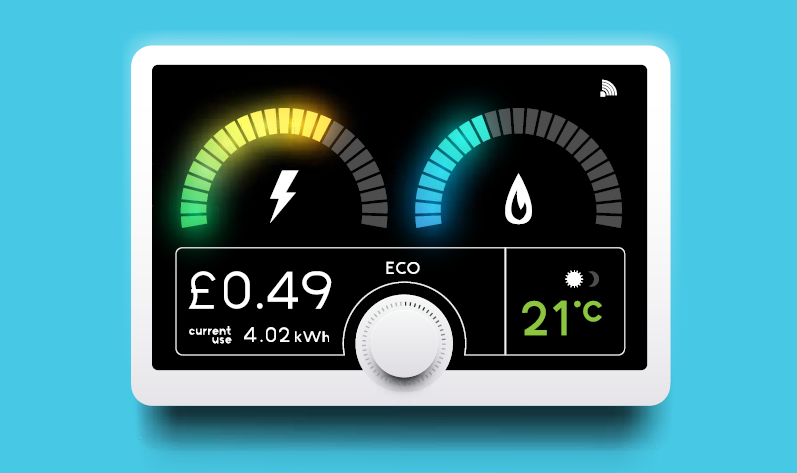You can access this information as a downloadable Fact Sheet, here: Non-Domestic Energy Advice
The Cost of Living Crisis is affecting everybody, leading many community groups to ask us how they can reduce their energy bills. While we usually focus our advice and support on domestic energy consumers, we’re happy to provide this guide to help steer groups in the right direction.
Whether you’re heating and powering a post-war, 3-bed, semi-detached house, or a scout hut, the principles of energy efficiency remain the same, as do our recommendations:
1. MEASURE THE BUILDING’S ENERGY EFFICIENCY
Public buildings over a certain size must obtain and display a DEC (Display Energy Certificate) to show visitors how efficient the building is. If your building doesn’t fall into this category, you can pay for a Non-Domestic EPC (Energy Performance Certificate) to be produced.
This provides you with a rating for your energy efficiency, from A-G (where A is the best and G is the worst), plus the certificate comes with a series of recommendations, covering aspects such as increasing insulation, replacing any inefficient lighting with more modern equivalents, upgrading the heating system, right up to the installation of renewable energy technologies, such as solar panels.

Find a local Non-Domestic Energy Assessor by entering the postcode of your building, here: www.epcregister.com and selecting “get a new energy certificate.” Ideally, you’ll want to contact two or three assessors to obtain quotes, to ensure you’re not overpaying for the service.
2. MAKE ENERGY EFFICIENT IMPROVEMENTS
The recommendations included with your Display Energy Certificate, or Non-Domestic EPC can be seen as a “to-do” list, that will increase the building’s efficiency from its current level to its maximum potential.
All aspects of the building fabric are considered, including:
Floors Can they be insulated from underneath? Solid floors can be insulated also.
Walls All wall types can be insulated, but cavity walls are easier/cheaper to insulate.
Roof Insulation can be laid on the floor of a loft, or attached to the underside of the roof.
Windows If you can’t install double (or triple) glazing, secondary glazing might be beneficial.
Lighting Fluorescent lights use about 20% of the energy of incandescent, filament bulbs. LEDs use about 50% of the energy of fluorescent bulbs.
Heating system & controls Non-condensing boilers are particularly inefficient. Condensing boilers can pay for themselves through the reduction in your future gas bills.
Renewable energy Is there space available for a ground/air source heat pump? Can your land house a small-scale wind turbine? Is the roof suitable for solar water heating, or solar electricity (photovoltaic) panels?
It might be the case that something on that list is affordable right now (e.g. LED lighting), meaning you can make a start on your energy efficient journey without delay. Other items will be more expensive, but community groups and charities might be eligible for funding to support you in paying for these.
You can search for potential funding streams via webtools such as www.grantfinder.co.uk.
3. ADOPT MORE ENERGY EFFICIENT HABITS You can have the most energy efficient building in the world, and still receive high energy bills if the people using the building leave the heating on high, 24/7, and never switch off the lights.
You can have the most energy efficient building in the world, and still receive high energy bills if the people using the building leave the heating on high, 24/7, and never switch off the lights.
It’s vital that occupants know what to leave on, and what to switch off. This could be a formal guide, or stickers (example right).
You’ll need a bit of ‘trial-and-error’ to come up with your user guide, but here are some general Top Tips to get you started:
• Room thermostats should be set within the “comfort zone” of 18oC-21oC.
• Thermostatic Radiator Valves should be set, so the more utilised areas of the property are heated higher.
• If you have set times for activities in your building, you can set a programmer, so the heating comes on shortly before people are due to arrive and switches off shortly before people are due to leave.
• If you need to use plug-in electric heaters, we recommend oil-filled radiators.
• Windows and doors should be kept shut while the heating is on.
• Windows should be open in warmer weather, to maximise natural ventilation over fans or air conditioning.
• Electrical equipment such as computers should be switched off after use.
• Lights should be switched on and off as required, not left on all day for the sake of it.
• You may wish to appoint an “Energy Champion” whose job it is to check that the above steps are all being adhered to.
4. MONITOR YOUR ONGOING ENERGY USE
Your EPC will provide an estimate of how much energy the building is likely to use per year. Check your most recent energy bill and see if this estimate is accurate. If you’re using less, you’re doing well. If you’re using more, set yourself a target to at least reach the amount suggested on the EPC.
Ask your energy supplier for a smart meter. These come with a display to show you how much energy is being used, and the meters send frequent readings to your supplier.
If they can’t supply you with one, you may wish to consider purchasing an electricity monitor (example pictured, below). This won’t provide meter readings to your supplier, but it will show you how much electricity you’re using right now.
By keeping track of your ongoing energy usage, you’ll be able to avoid nasty shocks when your bills arrive and prove the case that the steps you’ve taken towards energy efficiency have saved you money in the long run.

5. CHECK YOUR TARIFFS
Energy suppliers are slowly returning to the practice of offering fixed energy deals. Right now, the deals we’ve seen haven’t been great, but if you are out of contract, it could be worth checking with a price comparison company, in case you can save money by switching suppliers, or fixing with your current supplier. We hope better deals will return next year.


